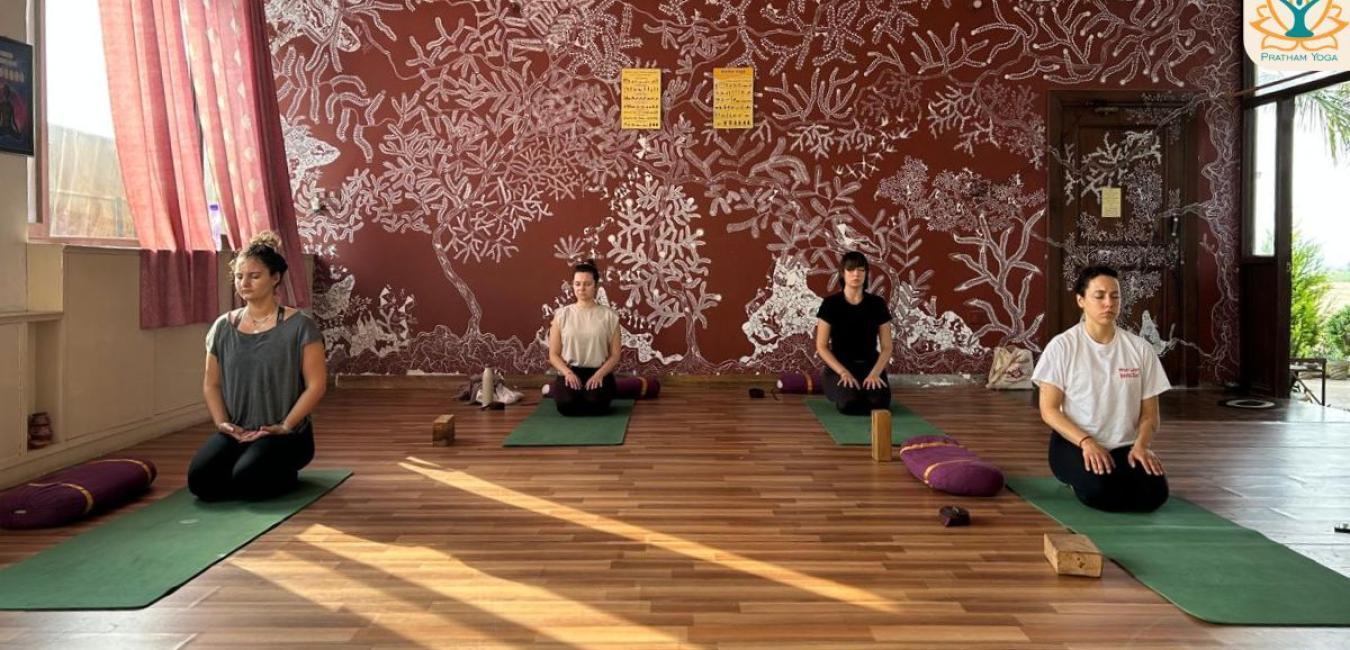The Importance of Yoga in Daily Life: A Path to Physical and Mental Well-being

In today’s fast-paced and stress-laden world, maintaining balance—physically, mentally, and emotionally—has become more important than ever. Amidst our busy schedules and growing responsibilities, the ancient practice of yoga offers a sanctuary of calm and a powerful tool for holistic health. The importance of yoga in daily life cannot be overstated. It is not just a form of physical exercise but a comprehensive discipline that nurtures the body, mind, and soul.
What Is Yoga?
Yoga, derived from the Sanskrit word “Yuj,” means to unite or to join. It symbolizes the union of the individual consciousness with universal consciousness. While it is often associated with physical postures (asanas), yoga also includes breathing techniques (pranayama), meditation (dhyana), and ethical principles for living a fulfilling life.
Yoga is both a philosophy and a practice, one that has been around for thousands of years. Rooted in ancient Indian tradition, yoga offers profound insights into human nature and provides a practical guide for improving every aspect of life.
1. Physical Health Benefits of Yoga
One of the most immediate effects of incorporating yoga into daily life is the improvement in physical health. The gentle stretching and strengthening exercises involved in yoga promote flexibility, enhance muscle tone, and improve posture. Here’s how yoga benefits your body:
-
Improves Flexibility: Regular practice stretches the muscles and increases the range of motion in the joints.
-
Enhances Strength and Endurance: Many yoga poses build core strength and develop stamina.
-
Boosts Immunity: Yoga supports the lymphatic system and helps flush out toxins from the body.
-
Improves Respiration: Pranayama, the yogic breathing exercises, increase lung capacity and improve oxygen flow.
-
Promotes Cardiovascular Health: Certain yoga styles improve heart rate and circulation, reducing the risk of heart disease.
-
Helps with Chronic Pain: People suffering from arthritis, back pain, and migraines often find relief through regular yoga practice.
By making yoga a part of your routine, you’re not just working out your body; you're cultivating a more resilient and agile physical system.
2. Mental Clarity and Emotional Stability
Another significant importance of yoga in daily life lies in its ability to enhance mental and emotional health. Yoga teaches mindfulness, focus, and the ability to live in the present moment. These qualities help combat common mental health issues such as anxiety, depression, and chronic stress.
-
Reduces Stress: Yoga activates the parasympathetic nervous system, bringing a sense of calm and relaxation.
-
Improves Concentration and Focus: Meditation and breath control help train the mind to stay present.
-
Enhances Mood: Yoga increases the levels of serotonin, the "feel-good" hormone.
-
Supports Better Sleep: Practicing yoga helps calm the mind and reduce insomnia.
-
Promotes Self-awareness and Emotional Intelligence: Yoga encourages introspection and emotional regulation.
The mental discipline learned through yoga can significantly impact productivity, creativity, and the quality of personal and professional relationships.
3. Spiritual Growth and Self-Realization
While physical and mental benefits are more widely acknowledged, the spiritual aspect of yoga is equally important. Daily practice fosters inner peace, contentment, and a deeper understanding of the self.
-
Connects You with Your Inner Self: Yoga encourages self-inquiry and reflection.
-
Develops Compassion and Gratitude: Through mindful living and ethical practices like Ahimsa (non-violence), practitioners become more empathetic and appreciative.
-
Leads to Inner Peace: Meditation and spiritual awareness bring a sense of purpose and alignment.
-
Guides Toward Self-Realization: The ultimate goal of yoga is to understand one’s true nature and connect with the universal consciousness.
The spiritual dimension of yoga enriches life with meaning and fosters a sense of unity with the world.
4. Enhancing Daily Life Through Routine Practice
Integrating yoga into daily life doesn’t require hours on the mat. Even a short 15–30 minute session can yield noticeable results over time. Here’s how you can integrate yoga into your routine:
-
Morning Stretch: Begin your day with sun salutations (Surya Namaskar) to energize your body.
-
Breathing Breaks: Use pranayama techniques during breaks at work to refresh your mind.
-
Evening Wind-down: Use gentle poses and meditation before bed to promote restful sleep.
-
Mindful Living: Apply yogic principles like non-judgment, contentment, and discipline to everyday actions.
These small, consistent efforts create a ripple effect, positively impacting your health, mindset, and relationships.
5. Yoga for All Ages and Abilities
Another important aspect of the importance of yoga in daily life is its inclusivity. Yoga is adaptable to all body types, ages, and fitness levels.
-
Children: Helps improve concentration, coordination, and emotional regulation.
-
Adults: Supports stress management and physical fitness.
-
Seniors: Enhances mobility, balance, and reduces risk of falls.
-
People with Disabilities: Adaptive yoga offers tailored practices that accommodate various physical and mental challenges.
Yoga is a lifelong companion that evolves with you through every stage of life.
Conclusion: Why Yoga Matters Every Day
The importance of yoga in daily life is a timeless truth. Whether your goal is physical fitness, mental peace, emotional balance, or spiritual growth, yoga provides the tools to achieve it. It helps us reconnect with ourselves in a world full of distractions and offers a grounded, holistic path to well-being.
Making yoga a part of your daily routine is not about perfection; it’s about presence, intention, and progress. Just a few minutes a day can transform your life over time. As the saying goes in yoga, “Practice and all is coming.”






